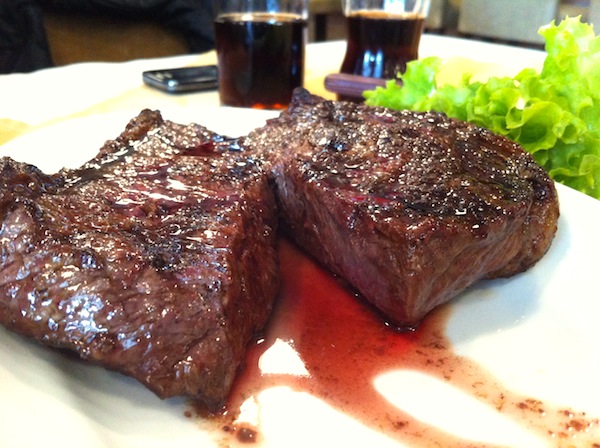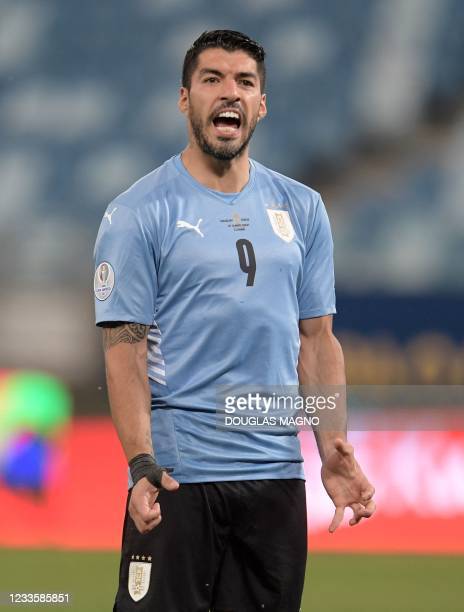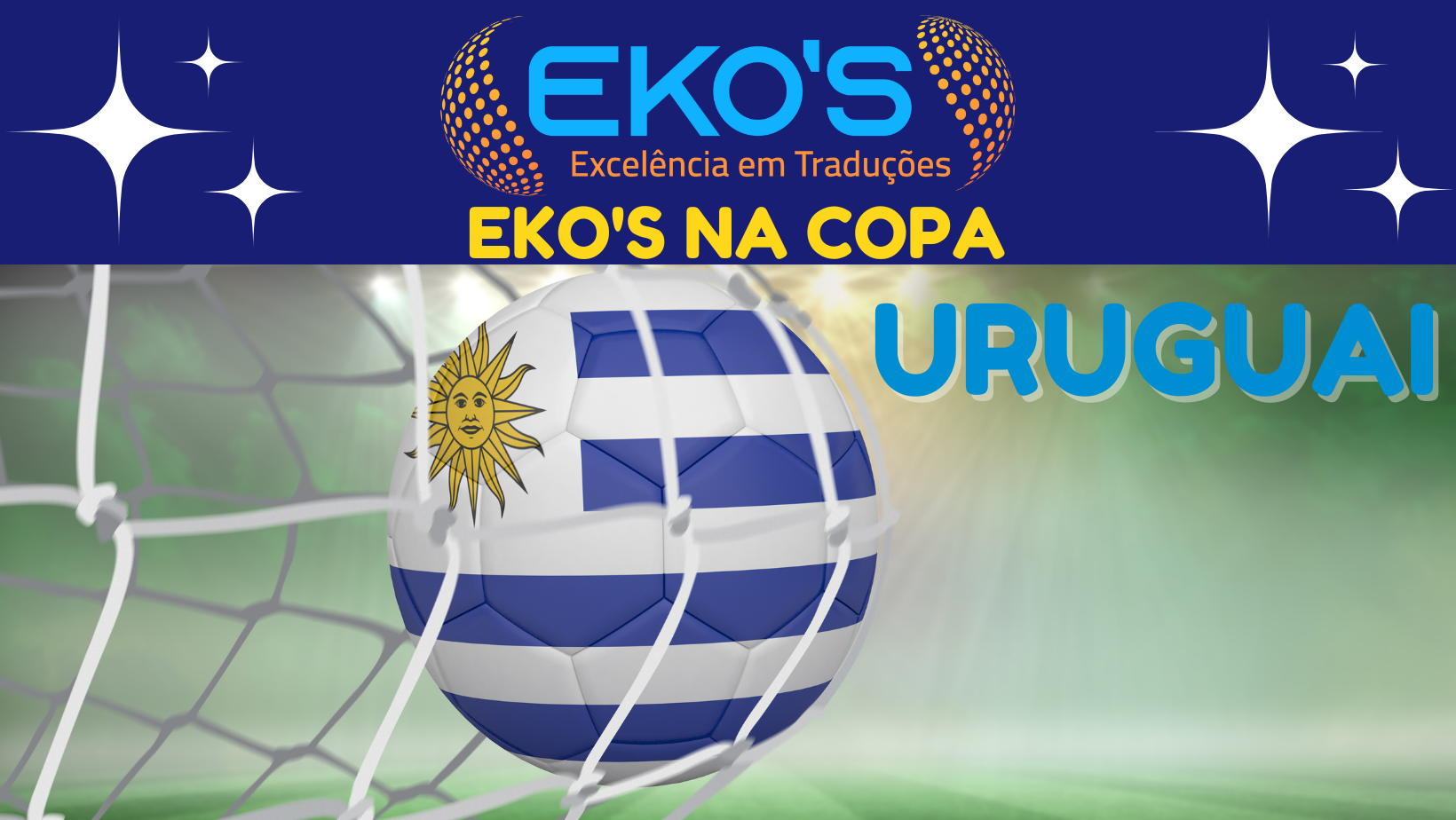Today we are going to talk about Uruguay, the first country to host the World Cup and the first one to be a champion in the World Cup.
URUGUAY
- Name written in its native language: Uruguai
- Language: Spanish
- Capital city: Montevideo
- Currency: Uruguayan peso (BRL 0.13 – currency exchange on 11/09/2022)
- Main player: Luis Suárez
- Typical food: Parrilla
Curiosities
During the pre-colonial period, the territory was inhabited by Indigenous populations. In Uruguay’s case, the territory was inhabited by Charrúa, Chanaé, Guarani Indians, among others. The arrival of Spanish colonizers occurred in 1624 in Soriano. In 1680, the Portuguese colonizers arrived in the country and the Uruguayan colonization was marked by the constant competition between Portuguese and Spanish people for the territory.
Between 1822 and 1828, the country was part of the Brazilian territory. At that time, Brazil was a Portuguese colony and, through an alliance between Brazilians and Portuguese, the Uruguayan territory was attached to Brazil. During this period, the country was called Cisplatina Province.
In 1825, Uruguayans were able to recover the control of their territory and Juan Antonio Lavalleja proclaimed the Uruguayan independence, which was acknowledged by Brazil and Argentina only in 1828.
About 40% of the Uruguayan population do not have a religion – it’s the highest rate in Latin America – thus, the Holy Week started to be called the Tourism Week and Christmas is called the Family Day. The Tourism Week is dedicated to leisure, vacations, travel, and rest, and even Christmas being called the Family Day, there are Christmas trees and Christmas decorations.
Uruguay economy is based on cattle and sheep breeding and exportation of products from these activities, such as meet, wool, and leather. In addition, Uruguay exports wheat, rice, and soybean in large amounts.
The language of Uruguay is Spanish (which is known there as Castilian) and, as other South American countries, the language has influence of the languages that used to be spoken during the pre-colonial period. Uruguayan Spanish is different from the Argentinian Spanish, for example. Uruguayans call a bus ómnibus, and Argentinians call it bondi. A boy is called botijas by the Uruguayans, and pibe by the Argentinians. Due to all these singularities, the work of a professional translator, able to identify and adjust them in the translation, is required.
A curiosity is that, from the 6th grade of elementary school, students mandatorily have Portuguese classes. Uruguay is the only country that does not speak Portuguese officially but teaches it at schools; hence, it’s common to find Uruguayans who speak Portuguese, mainly close to the border with Brazil.

Like Argentina, the country has the meat as the strong point of its cuisine. Parrilla is the name given to the meat roasted on the wood-fired barbecue grill. It is made of the best meat cuts, and what makes the Uruguayan meat unique and juicy is the way it is prepared, which they use firewood, and not coal. Uruguayans light the wood and let some ember fall; the ember is placed in one side of the barbecue grill, creating a type of high-temperature oven. The meat is placed a few centimeters of the ember and, although it takes longer to roast when compared to coal, they get tender and juicy, and the point is always medium-rare.
The Uruguayan team is known as the Celestial Olympic and got this nickname after winning the Olympic Games in 1924 and 1928. Before 1924, the Olympic soccer was played by amateur teams and even by clubs.
However, in 1924 and 1928, FIFA organized the Olympic soccer and only national teams played for medals. Since the uruguayan team won the gold medal in both Olympic Games, FIFA acknowledged it as the world champion, since the Olympic Games were the only championship that gathered national teams from all parts of the world. This was changed in 1930, when FIFA created the World Cup. Coincidently, the first World Cup was played in Uruguay and the host country was the champion, beating Argentina in the final. The Uruguayan team was the champion again in 1950, when the World Cup was played in Brazil, this time beating the Brazilian team in the match that became known as Maracanazo.
The main player in the Uruguayan team is Luis Suárez, known as “El pistolero” [The Gunman]. Suárez has had stints in soccer giants, such as Ajax, Liverpool, and Atlético Madrid, and was part of one of the greatest attacker trios of recent soccer history of Barcelona, with Messi and Neymar. During his time with Barcelona, he won a Champions League, one FIFA Club World Cup, and was a Spanish champion 4 times.
In this World Cup, Suárez should be a partner of the young player Darwín Núñez and Giorgian de Arrascaeta. The national team is the favorite to advance a stage with Portugal in Group H; however, the team is coming from bad matches recently. Uruguayans hope it will be different in Qatar and that the national team be able to play its best soccer.

If you liked it, follow our social media (Instagram: @ekostraducoes / LinkedIn: ekostraducoes) and come back tomorrow, because we are going to talk about South Korea.

